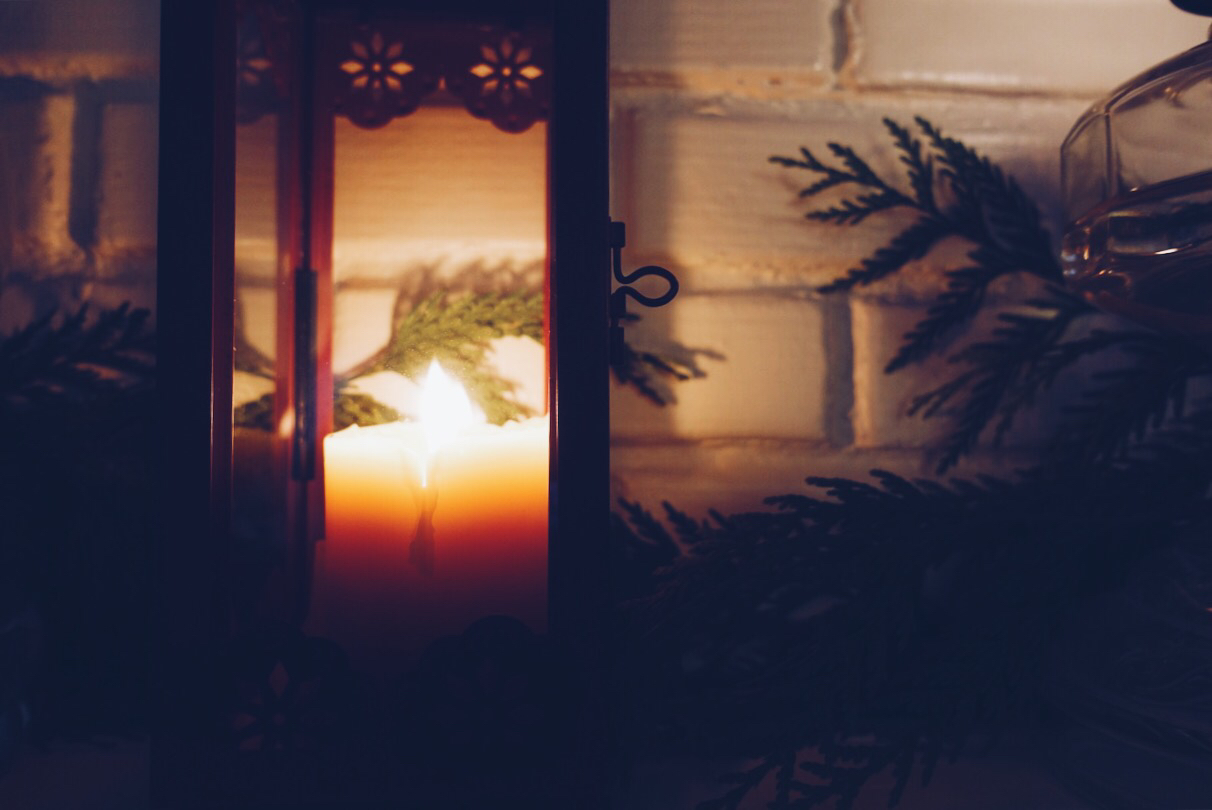you just need something to eat
/
Last night I had a dream. I was driving down the country highway that leads to tiny town. Suddenly I realized the windows were too fogged to see out of, and on top of that, I wasn’t wearing my glasses. I couldn’t see the road, the signs, the intersections,or anything at all. I began to panic. Then, in that strange way of dreams, I woke up on the side of the road, parked at a red light in the city. Somehow, despite my blindness, I had driven myself 30 miles and arrived in a traffic jam. And I still didn’t have my glasses. Terrified, I found my phone and dialed my husband, explained where I was and what had happened. Cars were honking, I had to drive, but I was nearly blind. What was I supposed to do??
“Don’t worry,” he said in a calm voice. “You just need something to eat.”
I got out of my car (dream-world, remember), went into a store and got some food and ate it. And he was right. Suddenly, I was not scared. I could think. I could see! And I drove myself home
We laughed when I told him about the dream later that day, but I’m always astounded at the psyche’s ability to reveal its own truth. Even though I wasn’t recognizing it yet, I’m in a time of change, pushing into new personal territory. Of course I’m a little anxious, stressed, and scared. Leave it to my practical husband to know what will help.
#
Recently, Anna Lovind wrote about the myth of the “fearless” artist. The (masculine-dominant) idea that we should harness fear and ride it like a bull into our own creative genius. What if, she suggests, instead of shaming ourselves into action, we recognize the message in the fear and tend to the need beneath it? I love this insight. What if we mothered our selves, recognized that sometimes all we need is an apple and a nap to give us the strength we need to face the next task?
Unfortunately, we don’t live in a world that values nurturing except in lip service and product advertisement (“You deserve a break today!"). Taking the time to nurture the self (or anyone) almost always registers to us as weakness and time-wasting because our world demands visible productivity, clock-watching, schedule-keeping, busyness, and monetary reward. We have to decide to do this on our own and recognize it as an integral part of our creative and intellectual process.
People who succeed at their goals are the people who find the way through. But that doesn’t mean we have to push and shove and wreck ourselves. We can still get there with intention and gentleness and maybe, at the end, we'll have kept both our dreams and our wholeness.
I know I’ve got a long drive ahead through unknown territory, so I’m going to put my effort where my mouth is and sleep an extra half hour. Eat something from the earth. Show up on the yoga mat. Stretch. Get outside. Back off the wine and drink more water. Turn off the internet. Wear thick socks. Stay warm. Breathe. You?




 We celebrate New Year's Eve/Day pretty quietly. We sometimes gather with friends or family, sometimes stay home. Almost always though, we write out plans and hopes for the next year.January 5th is Twelfth Night. There are a lot of fun traditions for Twelfth Night parties. We don't usually invite people over, but we do make a cake and hide a bean inside. The person who receives the bean in their slice of cake gets to be the King/Queen for the night (if you make a paper crown and find a scepter for them, all the better) and choose when to have more mulled wine, what movie to watch or game to play, etc. This is also a traditional time to pack up the tree and put away the decorations. (Except for the creche! The wise men are just arriving to meet the newborn King!)January 6th is Epiphany. Depending on how you count, technically the 13th day after Christmas, but it's the day when the light of Christ is revealed to the world (the Magi have arrived!) Some families save their gifts until this day. Personally, I like to have the Christmas decorations put away the night before so that this day feels light and clean and fresh. Apparently, I just discovered, in Ireland, this is also called
We celebrate New Year's Eve/Day pretty quietly. We sometimes gather with friends or family, sometimes stay home. Almost always though, we write out plans and hopes for the next year.January 5th is Twelfth Night. There are a lot of fun traditions for Twelfth Night parties. We don't usually invite people over, but we do make a cake and hide a bean inside. The person who receives the bean in their slice of cake gets to be the King/Queen for the night (if you make a paper crown and find a scepter for them, all the better) and choose when to have more mulled wine, what movie to watch or game to play, etc. This is also a traditional time to pack up the tree and put away the decorations. (Except for the creche! The wise men are just arriving to meet the newborn King!)January 6th is Epiphany. Depending on how you count, technically the 13th day after Christmas, but it's the day when the light of Christ is revealed to the world (the Magi have arrived!) Some families save their gifts until this day. Personally, I like to have the Christmas decorations put away the night before so that this day feels light and clean and fresh. Apparently, I just discovered, in Ireland, this is also called 

